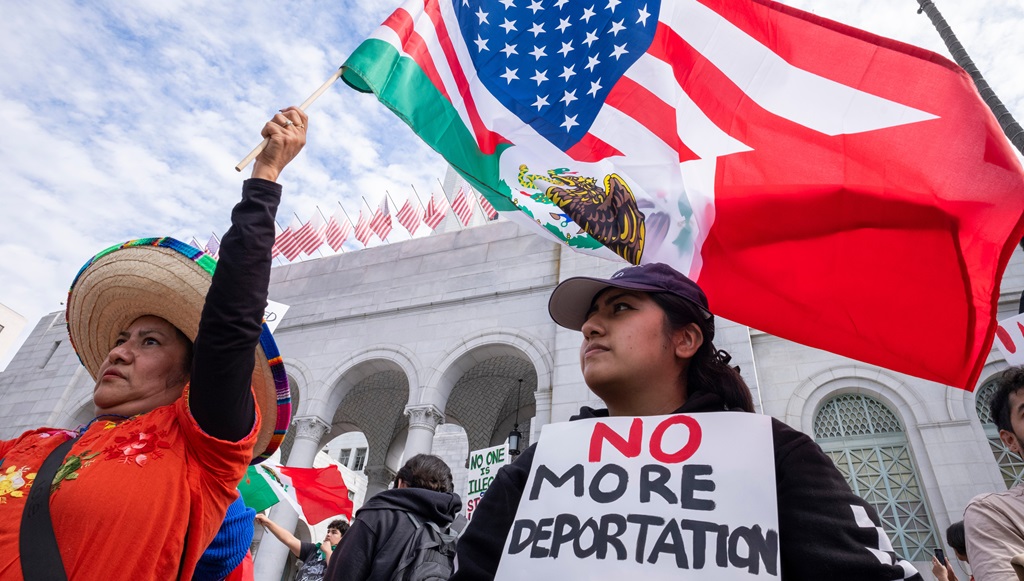The first few weeks of President Trump’s second term in office have instilled a heightened level of fear, as longtime neighbors, residents, and tightly knit communities have encountered increased federal immigration enforcement, elimination of safeguards like sensitive locations, and significant shifts in immigration policies.
Nevertheless, many communities continue to show up for one another in big ways and small to defend their neighbors, their loved ones, and their homes.
“A Day Without Immigrants” and Other Actions
From the business community to grassroots groups, a variety of voices have organized to push back and spotlight the harm of recent enforcement actions, like efforts to carry out mass deportations.
Across the United States, businesses participated in “A Day Without Immigrants” on February 3. With sales halted for a day, businesses in places like the Twin Cities, Minnesota; Houston, Texas; and Salt Lake City, Utah, highlighted the destructive consequences of mass deportations on their businesses, their community, and the economy.
Grassroots efforts organized protests to support immigrants and refugees nationwide—from Texas and Idaho to Missouri and Arizona, and many more places in between. Community members pushed forward their support, even as many of their states continue to grow increasingly hostile to immigrant communities.
Local law enforcement officials have also continued to pledge to serve the greater community good, stressing the importance of cultivating and sustaining public trust between law enforcement and immigrant communities. In communities across North Carolina, for instance, sheriffs are speaking out against the state’s recent decision to collaborate with U.S. Immigration and Customs Enforcement (ICE). They’ve emphasized that local law enforcement’s main directive is to protect and serve their community, not instill fear.
Communities Build and Strengthen Safeguards
Many community leaders and residents are taking additional concrete actions to protect their immigrant neighbors and community.
- Communities have been hard at work sharing information to ensure residents know and understand their rights, how to navigate an encounter with federal immigration enforcement, and what resources are available. Local groups, like the state branches of the ACLU, have also put together guides on how to interact with ICE.
- Others have created or continue to maintain legal funds to provide legal services for some immigrant populations.
- Many states, localities, schools, and community-based organizations have issued clear guidance and protections so that children and their families can feel safe sending their kids to school and focus on receiving a quality education.
- Communities have been working hard to amplify or create resources for residents, such as a rapid response line in St. Louis that will connect individuals with legal resources, real-time support, and document any potential immigration enforcement actions.
The action does not stop there. Just within the last week, a lawsuit was filed to challenge an executive order that suspended the U.S. Refugee Admissions Program and froze funds for refugee resettlement services. The faith community has also filed a lawsuit against a policy that rescinds the protected areas policy, stating that the new policy has made places of worship a place of fear and infringes on religious freedom.
While there is still a long way to go, communities have shown that they are ready to push back with lawsuits, protests, and protective legislation (or fight back against harmful bills) to defend immigrants and all community residents. Businesses continue to amplify the direct harm that the new policies would have on their industries—such as the agriculture and dairy industries—and all Americans.
Through all this, our neighbors have not only reminded one another of the social and economic detriments of the Trump administration’s immigration policies, they have shown that they care for their immigrant and refugee neighbors. Many are committed to showing up for their community and working to ensure that everyone can live a safe, secure, and stable life in pursuit of opportunity.
FILED UNDER: Deportation, Immigration and Customs Enforcement, Trump administration


